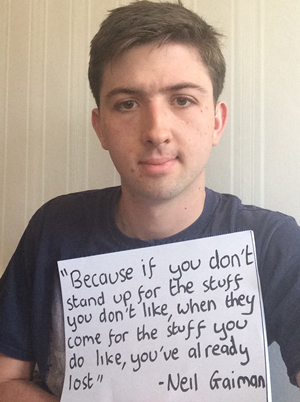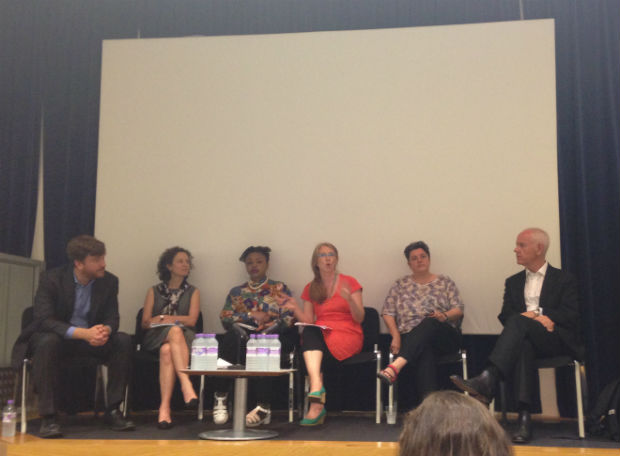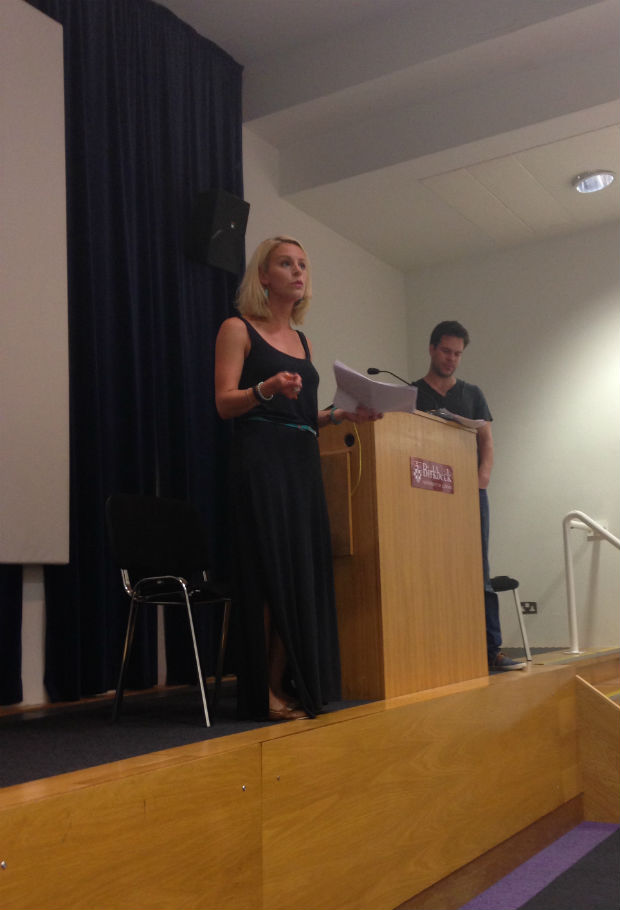Index relies entirely on the support of donors and readers to do its work.
Help us keep amplifying censored voices today.
To tie in with the release of Index on Censorship magazine’s summer 2015 issue on academic freedom, Index put together a reading list of articles looking at the issues surrounding freedom of speech in universities from all over the world. Highlights include Kaya Genc’s examination of the Turkish universities that are restricting professors’ rights to teaching certain portions of history and Duncan Tucker’s look at the academics and students facing death threats in Mexico. There are also testimonies from young women who faced obstacles to getting an education.
All of these articles are taken from the special report of the summer 2015 issue of Index on Censorship magazine.
Students and academics can browse the Index magazine archive in thousands of university libraries via Sage Journals.
Academic freedom articles
Kaya Genç, June 2015; vol. 44, 2: pp. 10-13
Index’s Turkish contributing editor discusses threats against professors that refuse to stick to the syllabus in Turkish universities
Universities under fire in Ukraine’s war by Tatyana Malyarenko
Tatyana Malyarenko, June 2015; vol. 44, 2: pp. 14-17
Academic’s jobs are under threat in Ukraine, Tatyana Malarenko discusses how many academics are being hauled in front of special committees and accused of terrorist activity
Industrious academics by Michael Foley
Michael Foley, June 2015; vol. 44, 2: pp. 18-19
Lecturer Michael Foley on the commercial pressures being applied to universities in Ireland
Stifling freedom: One hundred years of attacks on US academic freedom by Mark Frary
Mark Frary, June 2015; vol. 44, 2: pp. 20-25
Mark Frary takes us through one hundred years of attacks on freedom of expression in US universities
Martin Rowson, June 2015; vol. 44, 2: pp. 26-27
Cartoonist Martin Rowson’s regular Index illustration looks at students being gagged at graduation
Ideas under review by Suhrith Parthasarathy
Suhrith Parthasarathy, June 2015; vol. 44, 2: pp. 28-30
In India, the autonomy of universities is being challenged by Prime Minister Narendra Modi amidst growing concerns of censorship
Girls standing up for education by Natumanya Sarah, Ijeoma Idika-Chima, and Sajiha Batool
Natumanya Sarah, Ijeoma Idika-Chima, and Sajiha Batool, June 2015; vol. 44, 2: pp. 31-33
Three female students from Uganda, Nigeria and Pakistan discuss their experiences of their own education systems
Open-door policy? by Thomas Docherty
Thomas Docherty, June 2015; vol. 44, 2: pp. 34-39
Government suppression of UK universities is becoming more and more of an issue, reports Thomas Docherty. Includes the students view by the editor of The Cambridge Tab Sarah Ivers.
Mexican stand-off by Duncan Tucker
Duncan Tucker, June 2015; vol. 44, 2: pp. 40-43
Journalist Duncan Tucker lays out the battle for academic freedom in Mexico, where death threats, harassment and beatings are commonplace in universities
Return of the Red Guards by Jemimah Steinfeld
Jemimah Steinfeld, June 2015; vol. 44, 2: pp. 44-49
Index’s contributing editor in China Jemimah Steinfeld reports from China where a targeted campaign against anyone who criticises the ruling party has recently moved to universities
The reading list for threats to academic freedom can be found here
This is the fourth of a series of posts written by members of Index on Censorship’s youth advisory board.
Members of the board were asked to write a blog discussing one free speech issue in their country. The resulting posts exhibit a range of challenges to freedom of expression globally, from UK crackdowns on speakers in universities, to Indian criminal defamation law, to the South African Film Board’s newly published guidelines.
On 12 February 2015, the Counter-Terrorism and Security Act became law in the UK. If the fact that it is the seventh counter-terrorism bill in 14 years wasn’t enough to demonstrate the creep of governmental control, part five of the new legislation poses a direct and disturbing threat not just to freedom of expression but to knowledge and thought as well.
Part five of the Counter-Terrorism and Security Act places a statutory duty on public authorities to prevent terrorism. Under this remit falls schools and universities; places that used to be woven with the notion of free thought. The directions contained in the statute are unclear and gives universities the right to ban, exclude and prevent discussions that certain officials deem to incite radicalisation.
However, freedom of academic thought or discussion is not even the sole concern. London School of Economics Student Union’s community and welfare officer Aysha said: “Students who go to support services will now not be entitled to confidentiality under the new act if that person is deemed a ‘threat’, which is incredibly racialised.” In short, there is the potential that students would be unable to voice personal concerns, or the need for support, due to stereotypes that this act will enforce.
Jade Jackman, UK
Related:
• Harsh Ghildiyal: Defamation is not a crime
• Tom Carter: No-platforming Nigel
• Matthew Brown: Spying on NGOs a step too far
• About the Index on Censorship youth advisory board
• Facebook discussion: no-platforming of speakers at universities
This is the second of a series of posts written by members of Index on Censorship’s youth advisory board.
Members of the board were asked to write a blog discussing one free speech issue in their country. The resulting posts exhibit a range of challenges to freedom of expression globally, from UK crackdowns on speakers in universities, to Indian criminal defamation law, to the South African Film Board’s newly published guidelines.

Tom Carter is a member of the Index youth advisory board. Learn more
Universities are meant to be institutions that embody the spirit of free expression. They are places where new ideas are formulated and environments where students are exposed to a range of viewpoints. However, whilst freedom of expression in universities is under threat from government intervention, another threat to freedom of expression on UK campuses is originating from the students themselves.
In October 2014, UKIP’s Nigel Farage was invited by the University of Cambridge’s politics department to give an address on an undisclosed topic. This prompted two independent Facebook campaigns, one of which was from the Cambridge University Students’ Union Women’s Campaign imploring Cambridge to rescind the invitation, which it eventually was.
This is indicative of an increasing hostility among UK students towards the expression of ideas deemed unacceptable. Whether or not you agree or disagree with UKIP’s policies, they are the UK’s third largest party by vote share and very much constitute part of the political mainstream.
The fact that students are now willing to influence the speaker choices of universities is a worrying trend. Only by hearing views different to your own can your ideas be refined and fine-tuned and hearing policies expressed in public discussion is the only way to scrutinise them effectively.
Tom Carter, UK
Related:
• Matthew Brown: Spying on NGOs a step too far
• About the Index on Censorship youth advisory board
• Facebook discussion: no-platforming of speakers at universities

The panel (from left): Greg Lukianoff, Nicola Dandridge, Siana Bangura, Jodie Ginsberg, Julie Bindel and Ken Macdonald (Photo: Index on Censorship)
“I am proud to say that I, myself, am a trigger warning,” said journalist and author Julie Bindel, speaking at the launch of the summer issue of Index on Censorship magazine and its special report on academic freedom.
The panel, chaired by Index chief executive Jodie Ginsberg, also included Universities UK chief executive Nicola Dandridge, blogger and spoken-word poet Siana Bangura, author and president of the Foundation for Individual Rights in Education (FIRE) Greg Lukianoff, and former director of public prosecutions and warden of Wadham College Lord Ken Macdonald.
The debate covered a wide range of issues related to academic freedom globally, from safe spaces and the right to offend, to the absence of absolute freedom of speech and illegal versus legal speech. The event started with a performance from actors Jessica Guise and Jack Wharrier, based on interviews with students and academics from across the world about how it felt to be working and studying in the academic sphere today.
“It’s a very few highly privileged, pampered students who sit around controlling feminists societies,” said Bindel, who has been no-platformed by the UK’s National Union of Students over her writing, adding that “what they’re doing is bullying some of the less vocal, less confident women in the room”.
Lukianoff identified the bureaucratisation of universities, fear of liability and ignorance of the law as challenges to academic freedom in the US.
“I’m a First Amendment lawyer, but you don’t have to be a First Amendment lawyer to know that under the American First Amendment you can’t tell someone that they’re restricted to a tiny ten by ten zone on a massive public campus and that’s the only place they can hand out copies of the constitution. Yet nonetheless I have to take universities to court in order to demonstrate that,” he said.

Actors Jessica Guise and Jack Wharrier performed interviews with students and academics from across the world (Photo: Index on Censorship)
Bangura posed the question of who freedom of expression is for at universities. Among other things, she pointed to the lack of diversity among UK professors, of which only 0.49% are black. “When we’re always talking about who gets to say what, there’s a certain type 0f person saying stuff in the first place.”
She also addressed the idea that students are limiting free expression on campus: “I think as much as students are part of this debate, we are ignoring the bigger powers that be. Students only have a limited amount of power.”
The issue of security was also discussed. “How, from a universities perspective, do you manage these events if you have good reason to believe there could be violence if someone speaks?” questioned Dandrige.
On this, Macdonald spoke of the dangers of a “heckler’s veto”, saying: “I can ring up any university and say ‘I’m going to do a bomb threat if professor Norman Finkelstein is speaking next week’ and so the university cancels the event. This is a heckler’s veto.”
Read more about the global situation for freedom of expression on campus in the latest issue of Index on Censorship magazine. You can see two short videos from the debate below.
This article was posted on 2 July 2015 at indexoncensorship.org